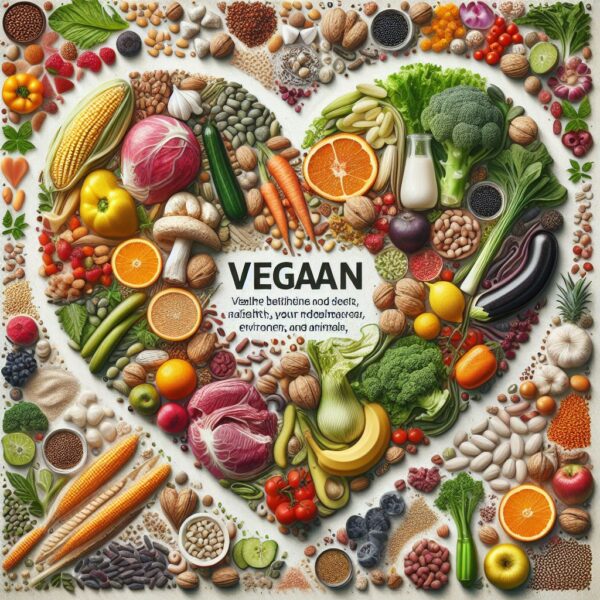In recent years, there has been a significant rise in the number of people adopting plant-based diets. This dietary shift involves consuming predominantly fruits, vegetables, whole grains, legumes, nuts, and seeds while minimizing or eliminating animal products like meat, dairy, and eggs. Let’s dive into the reasons behind this trend and explore the associated health benefits!
One of the primary drivers behind the popularity of plant-based diets is the increasing awareness of the environmental impact of animal agriculture. Livestock farming contributes to greenhouse gas emissions, deforestation, and water pollution. By choosing plant-based alternatives, individuals can reduce their carbon footprint and contribute to a more sustainable future.
Now, let’s talk about the health benefits! Plant-based diets are rich in fiber, vitamins, minerals, and antioxidants, which can promote overall well-being. Research suggests that these diets may help lower the risk of developing chronic diseases such as heart disease, type 2 diabetes, obesity, and certain types of cancer.

A plant-based diet can also be beneficial for cardiovascular health. By avoiding or reducing the intake of saturated and trans fats found in animal products, individuals can lower their cholesterol levels and reduce the risk of heart disease. Plant-based diets are often associated with lower blood pressure and improved blood sugar control as well.
Additionally, plant-based diets can support weight management. Fruits, vegetables, and whole grains are generally lower in calories and higher in fiber, which can help individuals feel fuller for longer and maintain a healthy weight. Plant-based diets can also be an effective approach for those looking to shed a few pounds.
Furthermore, plant-based diets have been linked to improved gut health. The high fiber content in plant-based foods promotes a healthy gut microbiome, which can positively impact digestion, nutrient absorption, and overall immune function. A healthy gut is essential for maintaining optimal health and well-being.

It’s worth noting that adopting a plant-based diet requires careful planning to ensure adequate intake of essential nutrients like protein, iron, calcium, and vitamin B12, which are commonly found in animal products. However, with proper knowledge and meal planning, it is entirely possible to meet all nutritional needs on a plant-based diet.
In conclusion, the growing popularity of plant-based diets is driven by various factors, including environmental concerns, ethical considerations, and the numerous health benefits associated with this dietary approach. By choosing a plant-based lifestyle, individuals can contribute to a more sustainable planet.
Also Checkout Other Posts:





